Clean composite sinks are a popular choice for many homeowners due to their durability, modern appearance, and resistance to stains and scratches. Made from a blend of materials such as granite, quartz, and resin, these sinks offer the best of both worlds: the beauty of natural stone and the resilience of synthetic materials. However, like any kitchen fixture, they require proper care and maintenance to keep them looking their best. In this comprehensive guide, we’ll walk you through the best practices for cleaning and maintaining your composite sink.
Understanding Composite Sinks
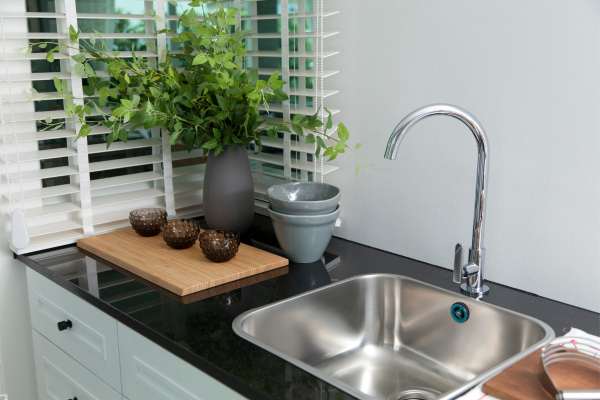
Before diving into the cleaning process, it’s important to understand what composite sinks are and what makes them unique. Composite sinks are engineered using a combination of natural stone (usually granite or quartz) and acrylic resins. This combination creates a non-porous surface that is highly resistant to stains, scratches, and heat. The durability of composite sinks makes them a great investment, but their unique material also requires specific cleaning techniques.
Daily Cleaning Routine
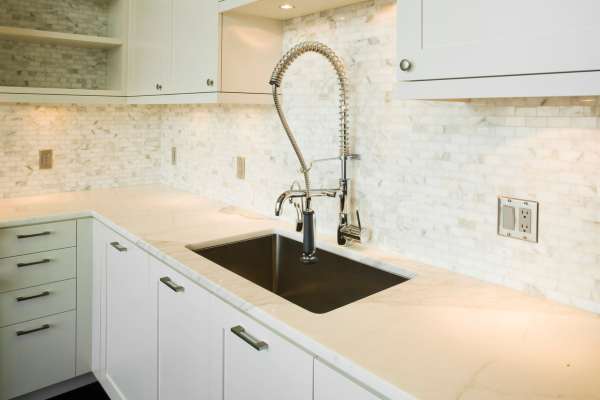
Rinse Regularly:
- After each use, rinse the sink with warm water. This helps remove food particles and prevents residue build-up.
- Use a soft sponge or cloth to wipe down the sink, ensuring that no debris is left behind.
Mild Dish Soap:
- Mix a small amount of mild dish soap with warm water.
- Use a soft cloth or sponge to clean the surface of the sink.
- Rinse thoroughly with warm water to remove any soap residue.
Avoid Harsh Chemicals:
- Do not use bleach, ammonia, or harsh chemical cleaners as they can damage the surface of the sink.
- Opt for pH-balanced cleaners that are safe for composite materials.
Weekly Deep Cleaning
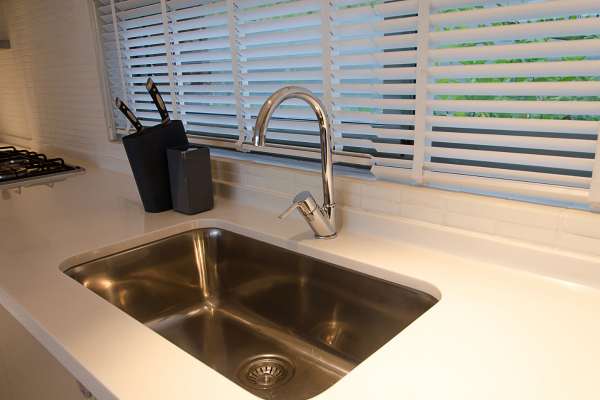
Even with daily maintenance, composite and clean copper sinks can accumulate grime and water spots over time. A weekly deep cleaning routine will help keep your sink looking pristine.
- Baking Soda Paste:
- Create a paste using baking soda and water. This natural cleaner is gentle yet effective.
- Apply the paste to any stains or discolored areas in the sink.
- Let it sit for 10-15 minutes before scrubbing gently with a soft brush or sponge.
- Rinse thoroughly with warm water.
- White Vinegar Solution:
- Mix equal parts of white vinegar and water in a spray bottle.
- Spray the solution over the sink, focusing on areas with mineral deposits or soap scum.
- Let it sit for 5-10 minutes before wiping clean with a soft cloth.
- Rinse thoroughly with warm water.
- Commercial Cleaners:
- If you prefer using commercial cleaners, choose ones specifically designed for composite sinks.
- Follow the manufacturer’s instructions carefully to avoid damaging the sink surface.
Removing Stubborn Stains
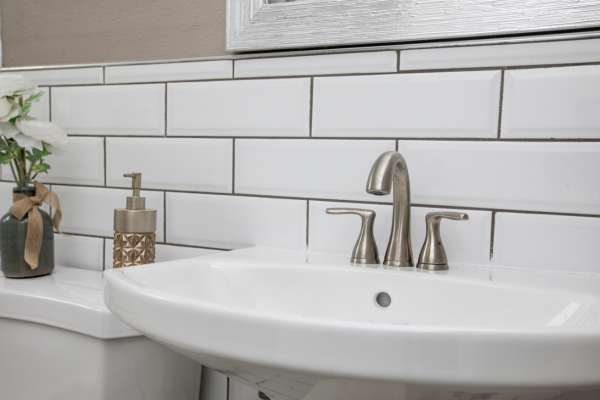
For tough stains that don’t respond to regular cleaning methods, try the following tips:
- Hydrogen Peroxide:
- Dampen a cloth with hydrogen peroxide and place it over the stained area.
- Let it sit for a few hours or overnight, then rinse with warm water.
- Bar Keeper’s Friend:
- This mild abrasive cleaner is safe for composite sinks.
- Apply a small amount to the stained area and scrub gently with a soft brush.
- Rinse thoroughly with warm water.
- Magic Eraser:
- A magic eraser can be effective for removing stubborn marks.
- Wet the eraser and gently rub the stained area.
- Rinse with warm water and dry with a soft cloth.
Preventing Damage

To keep your composite clean sinks looking its best, follow these preventive measures:
- Avoid Extreme Temperatures:
- Although composite sinks are heat-resistant, avoid placing extremely hot pots or pans directly in the sink. Use a trivet or cooling rack instead.
- Use a Sink Mat:
- Place a sink mat or grid at the bottom of the sink to prevent scratches from utensils and cookware.
- Rinse After Use:
- Always rinse the sink after using acidic or staining foods such as tomato sauce, coffee, or wine.
- Dry Thoroughly:
- After cleaning, dry the sink with a soft cloth to prevent water spots and mineral deposits.
Addressing Specific Issues

- Hard Water Stains:
- If you live in an area with hard water, you might notice white, chalky deposits in your sink.
- Regular use of the white vinegar solution can help keep these deposits at bay.
- Odors:
- To keep your sink smelling fresh, sprinkle baking soda in the drain and rinse with white vinegar.
- Follow with hot water to flush out any remaining residue.
- Discoloration:
- Composite sinks can sometimes develop a slight discoloration over time.
- Regular cleaning and avoiding staining foods can help maintain the original color.
Maintaining the Shine
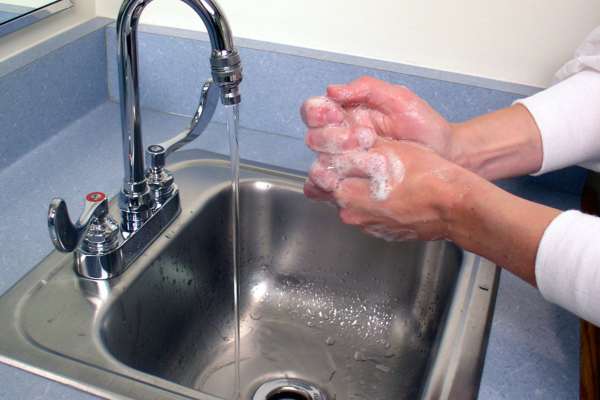
To maintain the glossy finish of your composite sink, follow these additional tips:
- Mineral Oil:
- Apply a small amount of mineral oil to a soft cloth and rub it into the sink surface.
- Buff gently to restore the shine and provide a protective barrier against stains.
- Avoid Abrasive Pads:
- Do not use steel wool or abrasive pads as they can scratch the surface.
- Stick to soft cloths or non-abrasive sponges for all cleaning tasks.
Conclusion
Clean composite sinks are a beautiful and practical addition to any kitchen, offering the perfect blend of style and functionality. By following the cleaning and maintenance tips outlined in this guide, you can ensure that your composite sink remains in top condition for years to come. Regular care, combined with the right cleaning techniques, will keep your sink looking as good as new, enhancing the overall aesthetic of your kitchen. Remember, a little effort goes a long way in preserving the beauty and durability of your composite sink. Happy cleaning!
